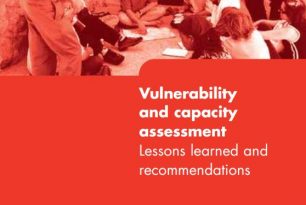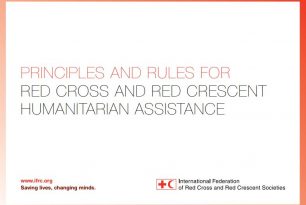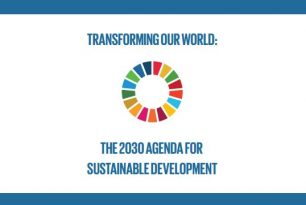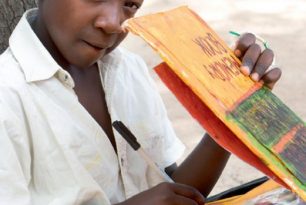
The lessons learned document describes the lessons learned, recommendation and good practice from National Societies.
![]()

These Principles and Rules for Red Cross and Red Crescent Humanitarian Assistance govern National Societies and their International Federation in international humanitarian assistance (excluding armed conflict, internal strife and their direct results).
These Principles and Rules recognize the importance of strengthening organizational, coordination and delivery capacities of National Societies, to respond to the increasing number and complexity of disasters and the growing number of vulnerable people. They call for greater collective learning, adaptation, innovation and leadership to ensure that the Movement achieves greater humanitarian impact. These Principles and Rules encompass preparedness for response, disaster relief and early recovery activities. They complement commitments to disaster risk reduction and seek to encourage National Societies to link relief, recovery and development. They establish a coordinated and agreed approach to quality and accountability, and recognize partnerships with public authorities, humanitarian actors and other organizations external to the Movement. These Principles and Rules are adopted within the statutory framework of the Movement.
![]()

The 17 Sustainable Development Goals (SDGs) of the 2030 Agenda for Sustainable Development — adopted by world leaders in September 2015 officially came into force on 1 January 2016. Over the next fifteen years, with these new Goals that universally apply to all, countries will mobilize efforts to end all forms of poverty, fight inequalities and tackle climate change, while ensuring that no one is left behind.
![]()

The Paris Agreement’s central aim is to strengthen the global response to the threat of climate change by keeping a global temperature rise this century well below 2 degrees Celsius above pre-industrial levels and to pursue efforts to limit the temperature increase even further to 1.5 degrees Celsius. Additionally, the agreement aims to strengthen the ability of countries to deal with the impacts of climate change. To reach these ambitious goals, appropriate financial flows, a new technology framework and an enhanced capacity building framework will be put in place, thus supporting action by developing countries and the most vulnerable countries, in line with their own national objectives. The Agreement also provides for enhanced transparency of action and support through a more robust transparency framework.
![]()

This handbook is for psychosocial practitioners who are planning a psychosocial intervention in response to a crisis or critical event. It is specifically targeted at practitioners working for Red Cross Red Crescent National Societies. However, most of the suggestions and recommendations presented are relevant to all stakeholders working in the field of psychosocial support.
![]()

This IFRC Health Advocacy Report depicts the stark reality of what it means to be an injecting drug user and living with HIV. It examines the prevention, treatment, care and support needs of this most at-risk population and the IFRC’s response to their plight. It also offers National Societies and the reader an advocacy tool that can be used for years to come. The aim? To remind governments and National Societies of the obligation to respect the human rights of injecting drug users at risk of, or living with, HIV. Although our focus is global, we place a special emphasis on Eastern Europe and Central Asia where the situation is becoming increasingly dire.
![]()